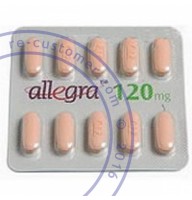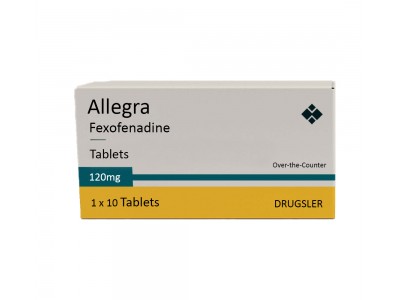What is Allegra (Fexofenadine)?
Allegra, known generically as Fexofenadine, is a popular antihistamine medication commonly prescribed to treat seasonal allergies, hay fever, and chronic urticaria (hives). It works by blocking histamine, a substance in the body that causes allergy symptoms such as runny nose, sneezing, itchy eyes, and rash. Though Allegra is generally considered safe for most individuals, it is important to understand that various factors may affect its efficacy and safety, including interactions with other drugs, foods, and substances.
Drug Interactions with Allegra (Fexofenadine)
When taking Allegra, you should be aware of the potential Allegra drug interactions that can either reduce its effectiveness or increase the risk of side effects. Some medications can interact with Fexofenadine, leading to undesirable consequences. Let’s explore common and serious interactions.
1. Fexofenadine and Other Medications
Some drugs may interfere with the metabolism of Fexofenadine, altering its concentration in the body. For example, certain Allegra and antihistamines may cause drowsiness or enhanced sedative effects, which can be problematic for those who need to stay alert. Additionally, medications that affect liver enzymes, such as antifungal drugs like ketoconazole, or antibiotics like erythromycin, may reduce the absorption of Allegra, making it less effective.
2. Fexofenadine and Grapefruit
Another common interaction to watch out for is between Allegra and grapefruit. Grapefruit can affect the metabolism of certain medications, including Fexofenadine, by inhibiting enzymes in the liver that are responsible for breaking down drugs. This can result in higher levels of Allegra in the blood, potentially leading to side effects like dizziness or headaches.
Fexofenadine and Alcohol
Fexofenadine and alcohol is a combination to avoid, as alcohol can exacerbate the sedative effects of many medications, including antihistamines like Allegra. While Fexofenadine is less sedating than some other antihistamines, consuming alcohol alongside it may still increase the risk of drowsiness and impair your ability to operate machinery or drive.
3. Fexofenadine Contraindications
Before taking Allegra, it is crucial to check for Allegra contraindications based on your medical history. Those with certain health conditions, such as kidney disease, may need a dosage adjustment or may need to avoid the drug altogether. Kidney disease can impair the body’s ability to eliminate Fexofenadine, leading to higher drug concentrations in the bloodstream and increased risk of side effects.
4. Other Drugs that Interact with Allegra
Other medications that may interact with Fexofenadine interaction with other medications include antacids containing aluminum or magnesium. These antacids can interfere with the absorption of Fexofenadine, making it less effective. If you need to take antacids, be sure to space them out from your Allegra dosage.
Potential Side Effects of Fexofenadine Interactions
While Fexofenadine side effects are generally mild, interactions with other substances may lead to more severe reactions. Some individuals may experience headaches, dizziness, or dry mouth. In rare cases, more serious side effects such as allergic reactions can occur, which require immediate medical attention.
Conclusion
Understanding the potential interactions with Allegra (Fexofenadine) is essential for safe and effective treatment. If you are taking other medications or have any pre-existing health conditions such as kidney disease, be sure to consult your doctor or pharmacist to avoid any adverse effects. Pay attention to your diet as well, particularly if you consume grapefruit or alcohol, as these can influence the drug’s effectiveness and safety. Always follow your healthcare provider’s guidance to minimize any potential risks and ensure optimal outcomes while using Allegra for allergy relief.

